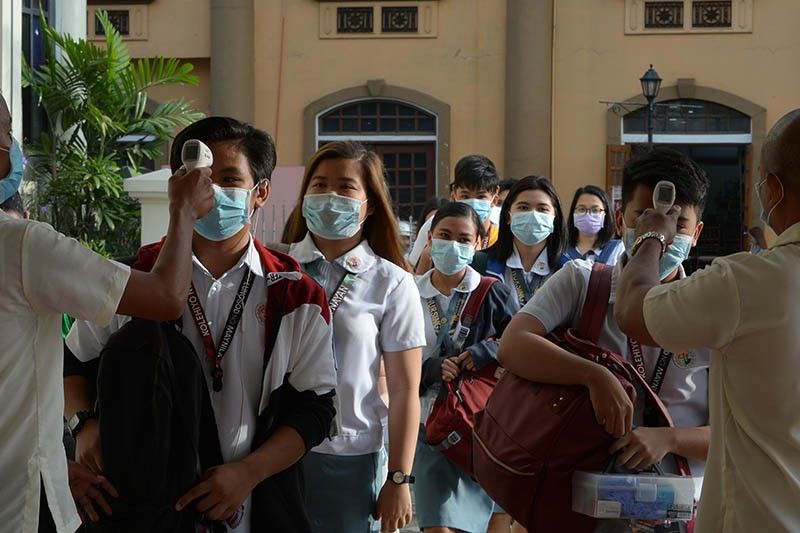Colleges on August-July calendar can extend sem by a month after ECQ lifting — CHED

MANILA, Philippines — The Commission on Higher Education on Tuesday released its latest COVID-19 guidelines for both colleges and universities using the June-May and August-July academic calendars, respectively, in response to the extension of the enhanced community quarantine to April 30.
Under the new guidelines dated Monday, higher education institutions with the old June academic calendar have been allowed to "finish their current semester, trimester, quarter or equivalent academic period by [April 30]," with in-person graduation ceremonies still discouraged in accordance with social distancing measures and mass gathering restrictions.
On the other hand, colleges and universities that adopted the August school calendar are authorized to extend their semester up to a month after the lifting of the said quarantine.
Summer and midterm classes have been limited to graduating students who need to complete academic requirements, students with subjects scheduled during summer under their degree program, and graduate students.
"The special summer classes must strictly observe social distancing and other safety requirements to prevent the spread of COVID-19,” read the commission’s COVID-19 Advisory 6 (Guidelines for the Prevention, Control and Mitigation of the Spread of Coronavirus COVID-19 in HEIs).
READ: CHED #COVID19 ADVISORY No. 6: Guidelines for the Prevention, Control and Mitigation of the Spread of Coronavirus Disease 2019 (COVID-19) in Higher Education Institutions (HEIs) pic.twitter.com/I4U7CJoRqb
— Commission on Higher Education (CHED) (@PhCHED) April 14, 2020
Internship and OJT
For health-related degree programs that require internship and clinical duties, colleges and universities can prepare a "catch-up plan" for students and extend classes or clinical duties for up to one month after the quarantine is lifted.
They may also modify or reduce program requirements, such as reports submitted or the number of clinical or surgical procedures to be assisted or done.
"HEIs shall coordinate with the various health facilities where students are currently deployed and coordinate plans regarding the flexible curricular modification arrangements being advanced to facilitate issuance of necessary certificates of completion," read the guidelines.
Meanwhile, CHED will review the programs, standards and guidelines of non-health-related degree programs and make necessary curricular adjustments to cover any changes in internship, on-the-job training and other academic requirements for the current school year.
“Students undergoing on-the-job training/internship where the students have been pulled out of their respective training centers and transferred to the university/college due to the ECQ should not be allowed to go back to their respective companies or offices.”
Training hours rendered before the enhanced community quarantine was declared on March 17 will likewise be considered and credited.
HEIs afforded flexibility
CHED Chairman Prospero De Vera III through the guidelines said that government officials will continue to meet on a regular basis and would provide updates on any changes to the Luzon-wide quarantine since the "pandemic situation is very fluid."
"CHED will provide new directives and guidelines as they become available.”
In the meantime, higher education institutions have been advised to still follow the commission's instructions through its earlier COVID-19 Advisories 1 to 5 to supplement its latest guidelines.
"During the period of extended ECQ, HEIs shall continue to exercise their judgment in the deployment of available flexible learning and other alternative modes of delivery in lieu of in-campus learning if they have the resources to do so. The exercise of discretion by the HEIs and their faculty must be reasonable, transparent and outcomes-based validated."
- Latest
- Trending
















